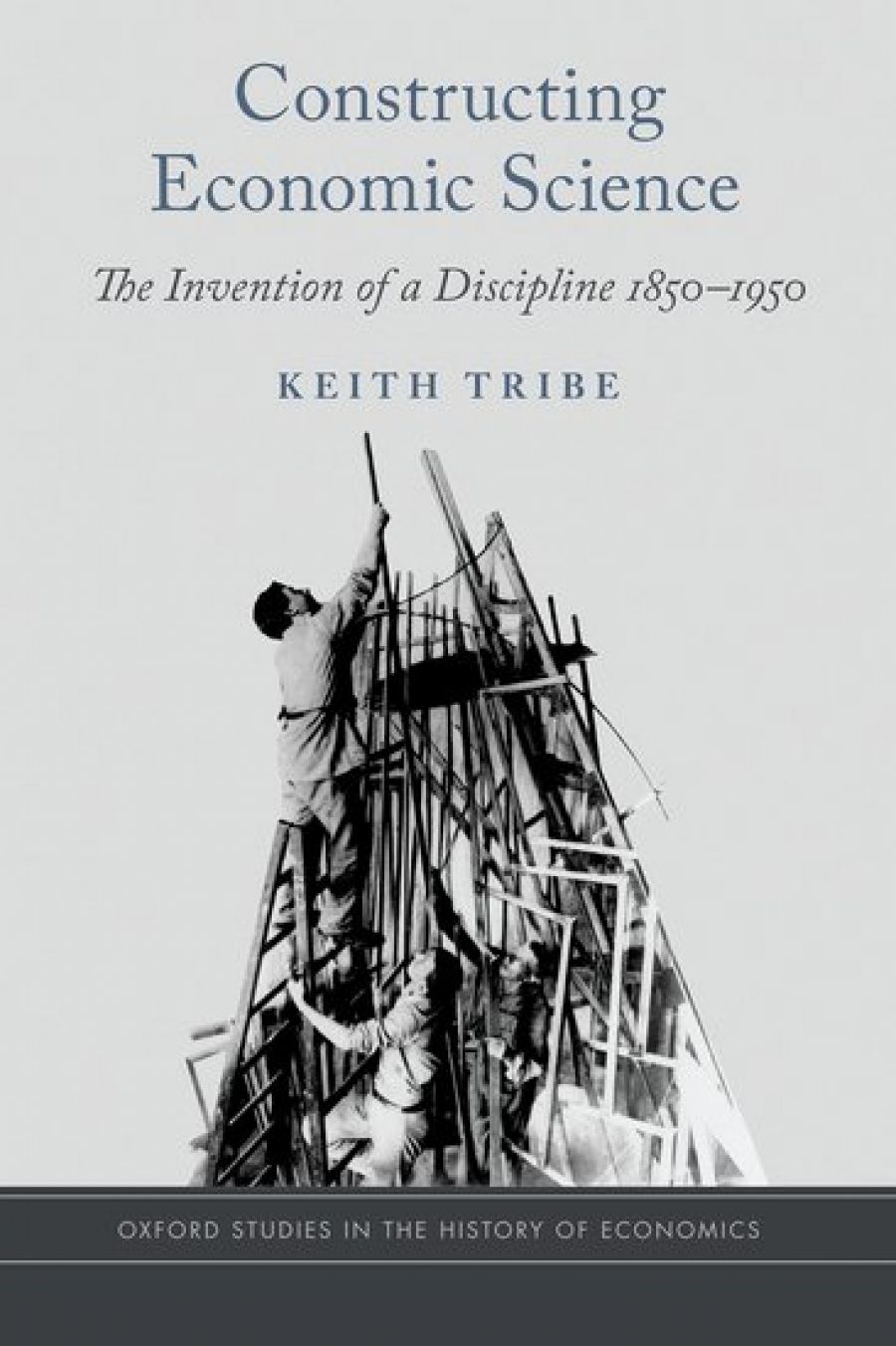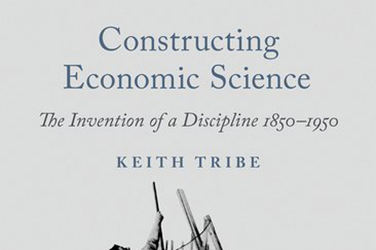
- Free Article: No
- Contents Category: Economics
- Review Article: Yes
- Article Title: University-made economics
- Article Subtitle: Keith Tribe’s new history
- Online Only: No
- Custom Highlight Text:
Don’t let the title put you off: this book is not purveying social theory but investigates the historical process by which economics became a university discipline in Britain, focusing on how that event changed the nature of economic knowledge. It thus mixes intellectual and institutional history of the highest quality. ‘Constructing’ in the title refers to the cover image of the model built by Vladimir Tatlin and his colleagues of his planned 400-metre tower. Tatlin was a ‘constructivist’ in the sense of the Russian art movement that needed engineers not philosophers. The tower was never realised, much like the ambitions held for economics by Alfred Marshall, its champion at the University of Cambridge, c.1885–1908, who sits at the centre of this book.
- Featured Image (400px * 250px):

- Alt Tag (Featured Image): Ryan Walter reviews 'Constructing Economic Science: The invention of a discipline 1850–1950' by Keith Tribe
- Book 1 Title: Constructing Economic Science
- Book 1 Subtitle: The invention of a discipline 1850–1950
- Book 1 Biblio: Oxford University Press, £64 hb, 456 pp
This situation has been improving over the past fifty years or so because historians of political thought have started reading figures such as Adam Smith. But they have hardly got beyond 1800 and have therefore little to say about Ricardo and nothing about the role of universities in changing the structure of knowledge. Tribe has had to do it all by himself. The book thus emerges from the stubbornness of a scholar who was prepared to visit university archives from Oxford to Dundee to discover the contexts surrounding such low-level, university-specific decisions as whether or not to create a new degree, which academics to hire, and how to revise curricula.
This recovery represents both the book’s original source base and its major methodological challenge to those intellectual historians who are accustomed to studying ‘context’ as other ideas disclosed in texts. Tribe’s point is that in the age of research universities most of these texts were only written because the authors had academic careers and responded to the incentives arising from this way of life. In other words, academic careers created academic economics; before then, economics was tied to parliamentary and political debate and, to a lesser degree, to the vocational needs of commerce students. This is a major revision to the usual narrative that has Alfred Marshall overseeing the institutional embodiment of neoclassical economics at Cambridge in the form of the Economics Tripos, established in 1903, as if neoclassical economics existed in the wild and was simply domesticated.
Tribe makes four correctives to this account. First, Marshall is unassimilable to what we think of as neoclassical economics because he was focused on building a toolkit for addressing social problems.
Second, Marshall’s dream of producing accomplished graduates did not materialise owing to a lack of students capable of acquiring the organon or reasoning apparatus that Marshall had fashioned for the vocation.
Third, degrees in Commerce were the original site for teaching economics in universities but the economists outmanoeuvred their rivals and set up their own citadels; they did so not by relying on any demand from the public or private sectors for trained economists but by capturing university committees.
Fourth, Marshall’s legacy withered shortly after his death in 1924 as the London School of Economics came to set the national curriculum, not Cambridge.
This brings us to Lionel Robbins, a charismatic huckster who became a professor at the London School of Economics in 1929 at the age of thirty. Robbins’s knowledge of economics, the world around him, and the German texts that he liked to cite was demonstrably circumscribed. This, Tribe suggests, allows us to make sense of his turn to methodology and the pneumatic world of supply and demand curves: he made the most of what he had, which was not a lot. Tribe mostly treats the demise of Marshallianism and its replacement by what is essentially today’s Microeconomics 101 with the historian’s detachment; it is neither good nor bad but simply what happened. At certain points, however, one encounters grumpiness in Tribe’s presentation, which might be a cover for despair that the project for an empirical and ‘social’ science devolved into a playground for third-rate mathematicians and reformers in a hurry.


Comments powered by CComment